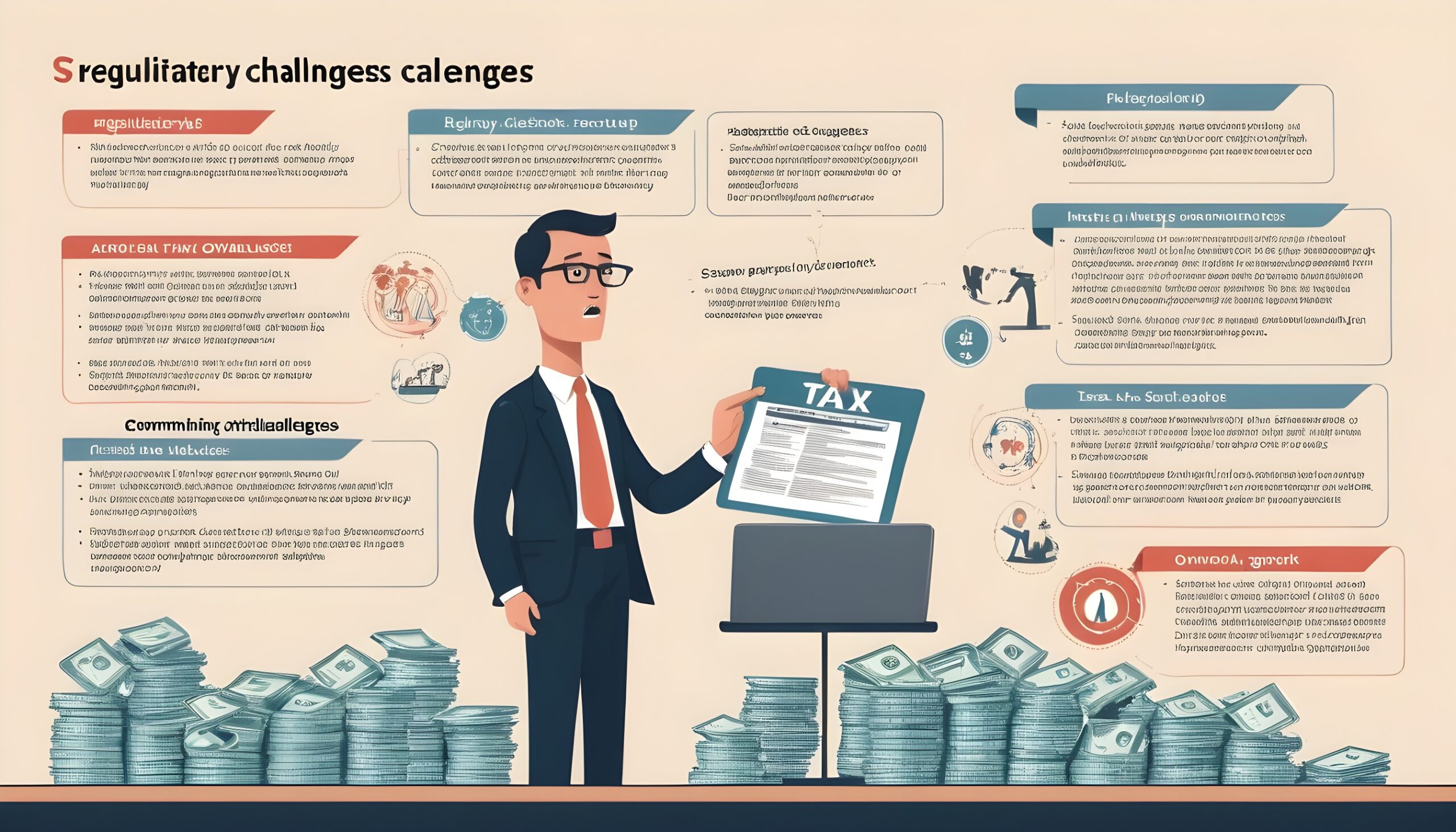Startups are known for their agility, innovation, and disruption potential. But in the midst of the thrill of starting a new business, entrepreneurs frequently run across a confusing web of regulatory obstacles that can impede expansion and success. Startups have to be cautious to maintain legal compliance while pursuing their business goals, from managing complicated tax requirements to adhering to strict security standards.
Young entrepreneurs face many obstacles because of tax restrictions, particularly when it comes to foreign taxation. International startups have to handle complicated tax regulations, such as those pertaining to tax treaties, foreign tax incentives, and transfer pricing. Furthermore, tax planning tactics are essential for minimizing tax obligations; startups employ strategies such corporate entity structuring, tax incentives, and deduction management. Technology solutions that automate compliance can expedite tax operations, but managing tax audits and disputes necessitates advance planning and knowledge of audit triggers and dispute resolution procedures.
Security rules present another legal challenge for companies operating in an increasingly digital world. Governments everywhere have enacted strict security regulations in response to the increase in cybersecurity threats and data breaches, with the aim of protecting consumer data and preserving national security interests.
Adhering to security regulations is a must for businesses in industries like financial, healthcare, and e-commerce. Startups need to have strong security measures in place to safeguard sensitive data and maintain regulatory compliance, from data encryption to secure payment processing.
Additionally, startups—especially those that operate in numerous jurisdictions—must navigate the complicated terrain of international security rules. Diverse laws governing cybersecurity, encryption, and data protection can be very difficult for firms looking to grow internationally.
Here are a few things that may be taken into consideration:
- International Taxation: Tax treaties help manage tax obligations between nations, foreign tax credits prevent double taxation, and transfer pricing establishes fair pricing for cross-border transactions. These are just a few of the complicated tax requirements that startups operating globally must traverse.
- Tax Planning Strategies: By strategically planning their business entities to minimize tax exposure, utilizing tax incentives like research and development credits, and carefully tracking and documenting their expenses, startups can minimize their tax liabilities.
- Automation of Compliance: Tax software solutions simplify tax calculations, digital recordkeeping assures correct paperwork, and real-time reporting offers quick insights into financial obligations. These technological advancements are critical to the automation of tax compliance procedures for startups.
- Tax Audits and Disputes: In the event of a tax audit or dispute, startups may encounter difficulties. The audit may be triggered by anomalies in tax returns or material modifications to financial information. While legal recourse options give channels for appeal and resolution, dispute resolution processes offer a means of addressing issues with tax officials.
- Privacy Regulations: To achieve compliance with strict standards for data handling, processing, and protection, startups must negotiate a complicated set of privacy rules, including GDPR, CCPA, and regional data protection legislation. Adherence to privacy standards is crucial for startups to protect client information, minimize legal liabilities, and uphold credibility and confidence among stakeholders.
- CyberSecurity Best Practices: Startups must put strong cybersecurity procedures in place to guard against data breaches and cyberattacks. This entails carrying out routine risk assessments, creating incident response plans, educating staff members thoroughly about cybersecurity, and handling third-party vendor relationships efficiently.
- Industry-Specific Regulations: Startups in the healthcare, banking, and government contracting sectors must comply with extra security laws and regulations that are specific to their company. FedRAMP for government contracts, PCI DSS for credit card information, and HIPAA for healthcare data are a few examples of these requirements.
In conclusion, while startups are synonymous with agility, innovation, and disruptive potential, they also have a variety of legal obstacles that may impede their expansion and prosperity. Startups have to put legal compliance first to be in business for the long run. This includes managing complicated tax laws and meeting strict security requirements. For businesses that operate internationally, international taxes present unique difficulties that need careful management of compliance processes and strategic tax planning.
Similarly, protecting sensitive data and upholding stakeholder trust depends on compliance with privacy laws and cybersecurity best practices. Complicating matters even further are industry-specific rules, which force companies in the healthcare, banking, and government contracting industries to undertake particular compliance programs.

